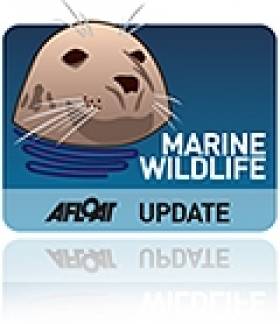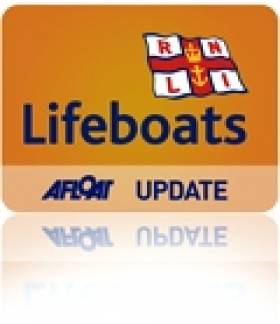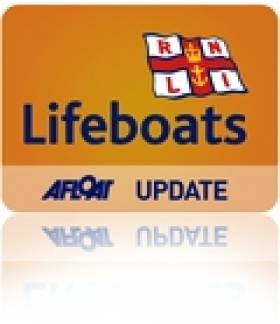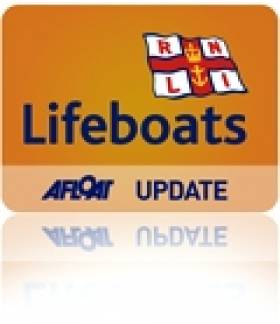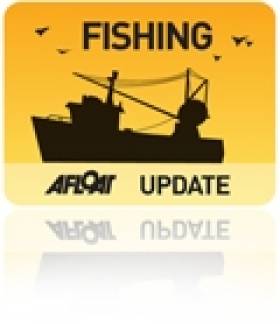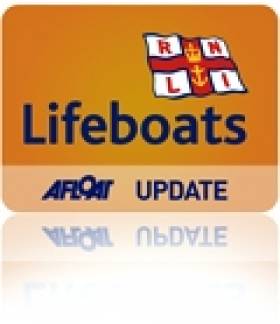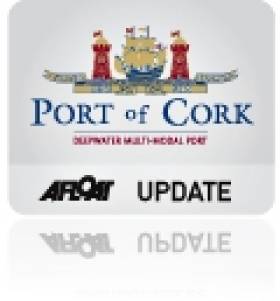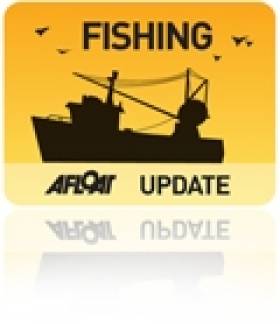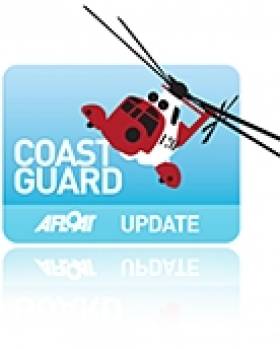Displaying items by tag: Fishing
Groups Urge Fisheries Ministers For Action On CFP
#CFPreform - RTÉ News reports that up to 200 conservation groups in Ireland and abroad have written to Marine Minister Simon Coveney and his EU counterparts urging his support for an end to overfishing in European waters by 2015.
The groups claim that mismanagement of EU fisheries under the Common Fisheries Policy has resulted in significant overfishing, particularly in the Mediterranean where as much as 80% of fish stocks are fished far beyond sustainable levels.
As previously reported on Afloat.ie, Minister Coveney - who is President of the European Council of Fisheries Ministers - welcomed a vote in February on a reform agenda for the CFP, which has been prioritised for delivery by the Irish EU presidency before the six-month term concludes at the end of June.
#MarineWildlife - UK environmentalists have expressed their disappointment at the British government's slow progress on developing its promised network of Marine Conservation Zones (MCZs), as the Belfast Telegraph reports.
The consultation period was for the proposals was set to end on Sunday 31 March - amid fears among conservation groups that were realised some months ago with the news that just 31 out of a potential 127 sites would be designated as protected for marine wildlife and plantlife by the end of this year.
It's being reported that Environment Minister Richard Beynon is blaming budget cuts and the high cost of scientific assessment for the slowdown in progress on the government's side.
"I want to do as many zones as we can for as little as we can," he told the BBC. "People have waited many years for this; we will designate the first tranche in September and will announce the next lot for consultation then."
The Royal Yachting Association (RYA) said in December that it was "encouraged" by the British government's "sensible" phased approach to the MCZ plans.
However, conservationists like Jolyon Chesworth from the Wildlife Trusts argue that their interests are being asked "to compromise on a compromise".
Chesworth added that the original 127 zones "were only nominated after very long discussions with anglers, sailors and the fishing industry".
The Belfast Telegraph has more on the story HERE.
#RNLI - Arranmore RNLI was involved in an epic 12-hour rescue in difficult weather of five fishermen on board a crabber which got into difficulty on St Patrick’s Day.
The station’s all-weather lifeboat was launched at 1.45pm to go to the assistance of the 15-metre fishing vessel which had lost power some 40 miles north west of Arranmore due to a rope getting tangled in the propellers. The five crew members on board the boat were not in immediate danger.
Arriving on scene at 4.30pm, the lifeboat crew, under second coxswain Jimmy Early, established a tow line and proceeded to escort the stricken vessel into Burtonport. However, due to a heavy five-metre swell, the journey was slowed down by the tow line breaking.
Arranmore RNLI volunteer lifeboat press officer Nora Flanagan said: "This was a long callout for all concerned, but our lifeboat crew was delighted that they were able to assist the five crew members and bring them and their fishing vessel safely to shore which they did shortly before 2am this morning (Monday 18 March)."
This was the first long-haul callout for Arranmore’s newest and youngest crew member, 17-year-old Dominic Boyle. The second youngest crew member - Leigh Early, son of coxswain Jimmy - was also on the call.
Meanwhile, three crew members from Courtown RNLI have been presented with animal welfare awards for their bravery in rescuing a woman and her dog from Courtown Harbour last December.
As previously reported on Afloat.ie, the 29-year-old woman got into difficulty when she attempted to rescue her Jack Russell, Holly, from the freezing water off Courtown pier.
The North Wexford Society for the Prevention of Cruelty to Animals (SPCA) awarded David Switzer, Aine Stafford and Fintan O’Donoghue for their efforts in rescuing the woman and her dog.
Colin Webb, chairman of the animal welfare group, said the society took strength from seeing examples of great compassion towards animals in the community.
Arklow RNLI Tows Stricken Whelk Vessel To Harbour
#RNLI - Arklow RNLI assisted the crew of a whelk fishing vessel which got into difficulty yesterday (Thursday 14 March).
The volunteer crew launched their all-weather lifeboat, the Ger Tigchlearr, shortly before 9am to go to the aid of a local fishing vessel.
The boat's crew had been fishing four miles south-east of Arklow Harbour when the vessel fouled its propeller.
The lifeboat was on scene within minutes and having ascertained the status of the casualty, the crew established a towline and proceeded to tow the stricken vessel back to Arklow Harbour.
The fishing boat's crew stayed aboard and all hands came ashore later at Arklow Harbour.
Following the callout, Arklow RNLI volunteer lifeboat press officer and sea safety officer Mark Corcoran said: "Even in good conditions at sea, things can and do go wrong.
"If anyone finds themselves in difficulty at sea they should call for help on 999 or 112 or call the coastguard on VHF radio."
The assist came a week after Arklow RNLI aided three fishermen whose vessel was adrift four miles off the Wexford coast, as previously reported on Afloat.ie.
Kilmore Quay RNLI Tends to Fishing Vessel in Epic Callout
#RNLI - The volunteer lifeboat crew at Kilmore Quay RNLI in Co Wexford responded to an 11-hour callout yesterday morning (Sunday 10 March) involving a 23-metre fishing vessel that had got into difficulty 40 miles south of the harbour. See video of the operation below.
With a biting easterly wind, the lifeboat crew made their way just after 8am to the vessel, which had suffered machinery failure, and arrived on scene at 10.40am.
Establishing a tow between the lifeboat and the fishing vessel with five crew onboard, the two vessels made slow progress back to shore in worsening conditions.
Commenting on the long callout, Kilmore Quay RNLI volunteer lifeboat crew member Aidan Bates said: “It was a bad day for a callout yesterday but the fishing vessel needed our assistance and the weather was worsening by the hour. By the time we were returning with the boat under tow the winds were blowing gale force seven to eight and it was choppy enough.
"Thankfully everyone was safe and the lifeboat crew were able to return home after a long day at sea.”
#Fishing - Inland Fisheries Ireland (IFI) is inviting applications for Commercial Salmon Fishing (Draft Net & Snap Net) Licences for 2013.
The new licences are in accordance with the Control of Fishing for Salmon Order 2013, and come in the wake of the new Draft Nets and Snap Nets Bye-Law which sets out the relevant details for the current commercial fishing season.
An application form can be found within the downloadable PDF of said order, or may be obtained from your local IFI office. The closing date for receipt of completed applications is 29 March 2013. Late submissions cannot be accepted.
Arklow RNLI Aids Fishing Vessel Off Courtown
#RNLI - Arklow RNLI came to the assistance of three fishermen whose vessel got into difficulty off the Wexford coast yesterday (6 March).
The volunteer lifeboat crew was alerted shortly before 1.30pm following a report that a fishing vessel was adrift four miles east of Courtown Harbour.
The all-weather lifeboat, the Ger Tigchleaar, was launched within minutes and proceeded to the scene where the vessel, the MFV Telstar, had lost steering power.
Having located the casualty, the crew members established a tow and began the journey back to Arklow. All three crew members who remained on board the MFV Telstar were returned safely ashore.
Speaking ashore, the vessel’s skipper James Russell, himself an Arklow RNLI volunteer crew member and experienced seaman, paid tribute to his fellow lifeboat crew members Eamon Kavanagh, Matt Heaney, Scottie Heaney, Michael Fitzgerald, Andy Loughlin and David Lee who came to his crew’s assistance.
"I thought we were well prepared for situations which might happen at sea but knowing the lifeboat is there when needed is a great help," he said. "When anyone gets in to difficulty they should have no hesitation in calling for help as I did today."
Public Consultation On Future Of Bantry Bay Harbour
#IrishHarbours - The Department of Transport, Tourism and Sport (DTTAS) is asking members of the public and all interested parties for their views on plans to merge Bantry Bay Harbour with the Port of Cork Company.
The department believes that the future of Bantry Harbour would best be secured through a merger, and is seeking views on the proposals by 5 April.
Government policy is to merge harbours with significant commercial traffic with a port company, and to transfer smaller harbours to a local authority. To date 11 harbours have transferred to local authority control. Bantry Bay Harbour is now the only regional harbour operating under the Harbours Act of 1946.
A Review of Regional Ports and Harbours in 1999 recommended that Bantry Bay Harbour Authority should merge with the Port of Cork company, on the grounds of good governance.
The core business of Bantry Bay Harbour is the oil storage and transhipment terminal on Whiddy Island. Aquaculture, fishing and tourism are also prevalent in the harbour and a small number of cruise liners visit the harbour each year.
Amalgamation with the Port of Cork would provide access to port expertise, marketing, strategic development planning and the skills required for the regulation of navigation, ship and port security requirements, pilotage, safety, emergency response, and pollution.
The Port of Cork currently provides this professional expertise through the provision of harbourmaster services, on a contractual basis, to bring in large oil tankers and cruise liners into the bay. This is an absolute requirement to operate business in Whiddy to help mitigate the risks of maritime accidents and environmental damage.
Should the transfer take place to the Port of Cork, there is an opportunity for the port to provide local representation to Bantry Bay and some investment back into the harbour. The opportunity also exists for the Port of Cork and the local authority to co-operate with regard to the future development of the harbour.
Sea-Fisheries Protection Authority Meet with Newly Appointed Sea-Fisheries Protection Consultative Committee
#sfpa – The Sea-Fisheries Protection Authority (SFPA) will meet with the newly appointed Sea-Fisheries Protection Consultative Committee, today, Thursday 7th March at Agriculture House, Dublin. The 14 member Consultative Committee which consists of representatives from the Irish marine community, is appointed by the Minister for Agriculture, Food and Marine, under the provisions of the Sea Fisheries and Maritime Jurisdiction Act to liaise with SFPA on behalf of the sea-fisheries and seafood sectors. The previous Consultative Committee were particularly active in their regular meetings with the SFPA which is now reinvigorated following recent new appointments by the Minister for Agriculture, Food and the Marine, Mr Simon Coveney, TD, including a new Chairperson, Ms Gillian Mills. Today's meeting marks the first sitting of the new Consultative Committee.
Engagement between the SFPA and the Consultative Committee is a two-way process - the Consultative Committee's primary function as described in legislation is to inform the SFPA of the concerns and views of the sea-fisheries and seafood sectors regarding the functions of the SFPA and equally to facilitate the SFPA with communicating to the wider industry.
Part of the remit of the Committee is to also advise the SFPA on the fairness and consistency of its operations. The Consultative Committee will also keep the sea-fisheries and seafood sectors generally informed of the applicable sea-fisheries law and food safety law, as well as of the standards, guidelines, practices and procedures operated by the SFPA in relation to the enforcement of that law. Overall the Consultative Committee's function is to seek the delivery of a high standard of service by the SFPA.
Micheál O'Mahony, Board member with the SFPA said: "The SFPA can only achieve its goals through open dialogue with the sea-fisheries and seafood sectors. This Sea-Fisheries Protection Consultative Committee is a valuable forum through which we continue to share key information on how best to monitor the sea-fisheries and seafood sectors. We are delighted to see the reinvigoration of the role of the committee by the Minister, as various significant challenges are faced in the implementation of current and incoming legal obligations in these sectors.
I am sure this collaboration between the SFPA and the Consultative Committee will continue to help SFPA to work towards its service delivery and facilitate ongoing industry compliance. The SFPA and the industry share common goals, most notably the attainment of a vibrant, compliant seafood sector. We look forward to a fruitful exchange of information and ideas on how we can best work together to protect the interests of legitimate operators within the sea-fisheries and seafood sectors. I would also like to take this opportunity to thank Mr Tom Geoghegan for successfully taking on the role of acting Chair of the Consultative Committee - Mr Geoghegan remains on as Deputy Chair of the Consultative Committee."
UK Coastguard Agency Head Meets Fishermen's Mission in NI
#Coastguard - The chief executive of the UK's Maritime and Coastguard Agency (MCA) was in Northern Ireland yesterday (4 March) to discuss future collaboration with the Royal National Mission to Deep Sea Fishermen.
As Fishupdate.com reports, the charity - also known as the Fishermen's Mission - provides emergency support to fishermen and their families in times of need.
Sir Alan Massey of the MCA was in Kilkeel, Co Down to meet with the charity's CEO David Dickens to find out how best to work together on their common ground of safety at sea.
"We want to encourage a culture where it becomes normal practice for all fishermen to wear a lifejacket or personal flotation device (PFD) when out at sea," said Massey.
Dickens added that the Fishermen's Mission is "keen to engage with all agencies and organisations that seek to reduce the number and severity of incidents in fishing".



























